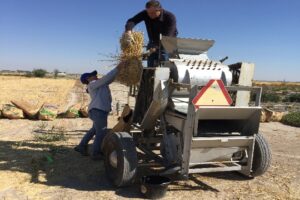In agricultural communities in Central and South America, Egypt, India, and Sri Lanka, doctors and researchers are observing a steep increase in a chronic kidney disease among individuals who lack traditional risk factors for such illness, such as obesity or diabetes. The absence of these traditional risk factors suggests that the underlying causes of this disease may be different, and need to be investigated so that action can be taken to reduce the number of cases of illness. This illness is called “Chronic Kidney Disease of Unknown Origin”, or CKDu, and it appears to primarily affect agricultural workers, especially men in their 30s and 40s.
Recent investigations suggest that agricultural workers in the United States may carry similar risks, as reduced kidney function has been found among those working in US agriculture. Current hypotheses suggest that the risks are likely multifactorial, and potential causes include pesticide exposure, excessive intake of fructose, and dehydration in the presence of demanding physical labor in hot environments. Our research aims to investigate the relationship between these potential risk factors and kidney function in a large, nationally representative sample of Americans called the National Health and Nutrition Examination Survey (NHANES).

Funded by the Regional Alliance of INBRE (IDeA Network of Biomedical Research Excellence) Networks, this study involves a collaboration between Dr. Curl, Dr. Sally Moyce at Montana State University, and Dr. Evan Johnson at the University of Wyoming. In addition to building a research collaboration of investigators from three states in our western region, this project also leverages the expertise of each investigator to address a complex scientific problem. This study aims to test associations of urinary dialkyl phosphate metabolites of organophosphate (OP) insecticides and reduced estimated glomerular filtration rate (eGFR), and associations of urinary markers of water intake, physical activity, and macronutrient intake with reduced eGFR, among the NHANES population.
This project ensures a synergistic approach to investigate the potential causes of a disease that is quickly becoming a global epidemic, and this work will contribute to our understanding of the potential relationship between multiple possible risk factors and reduced kidney function.